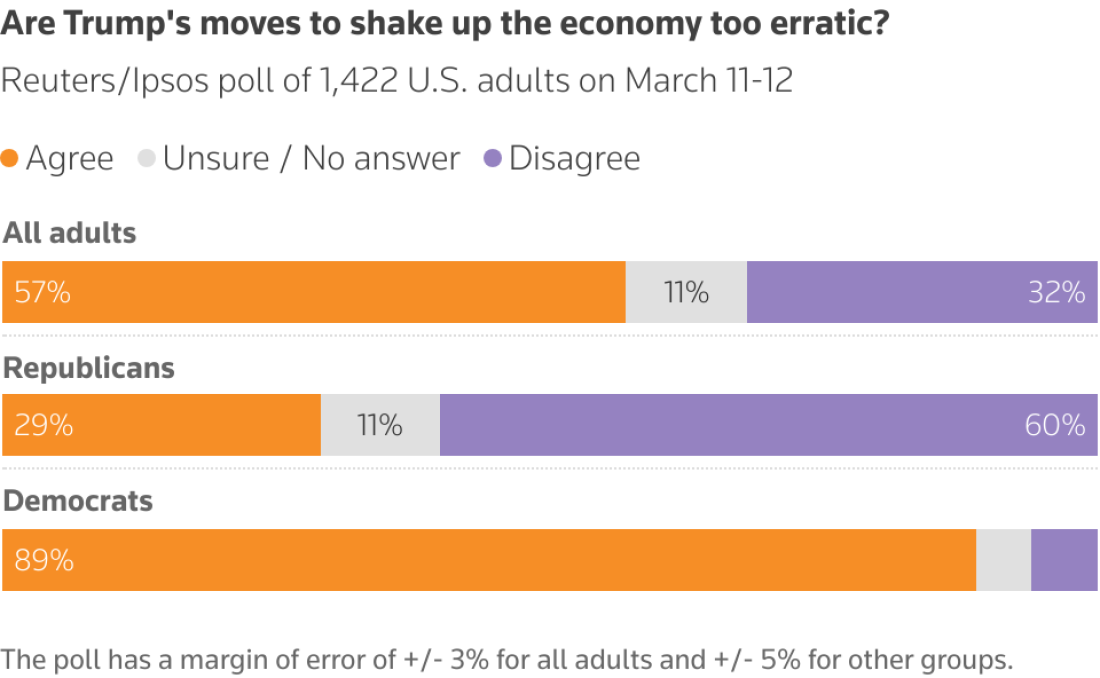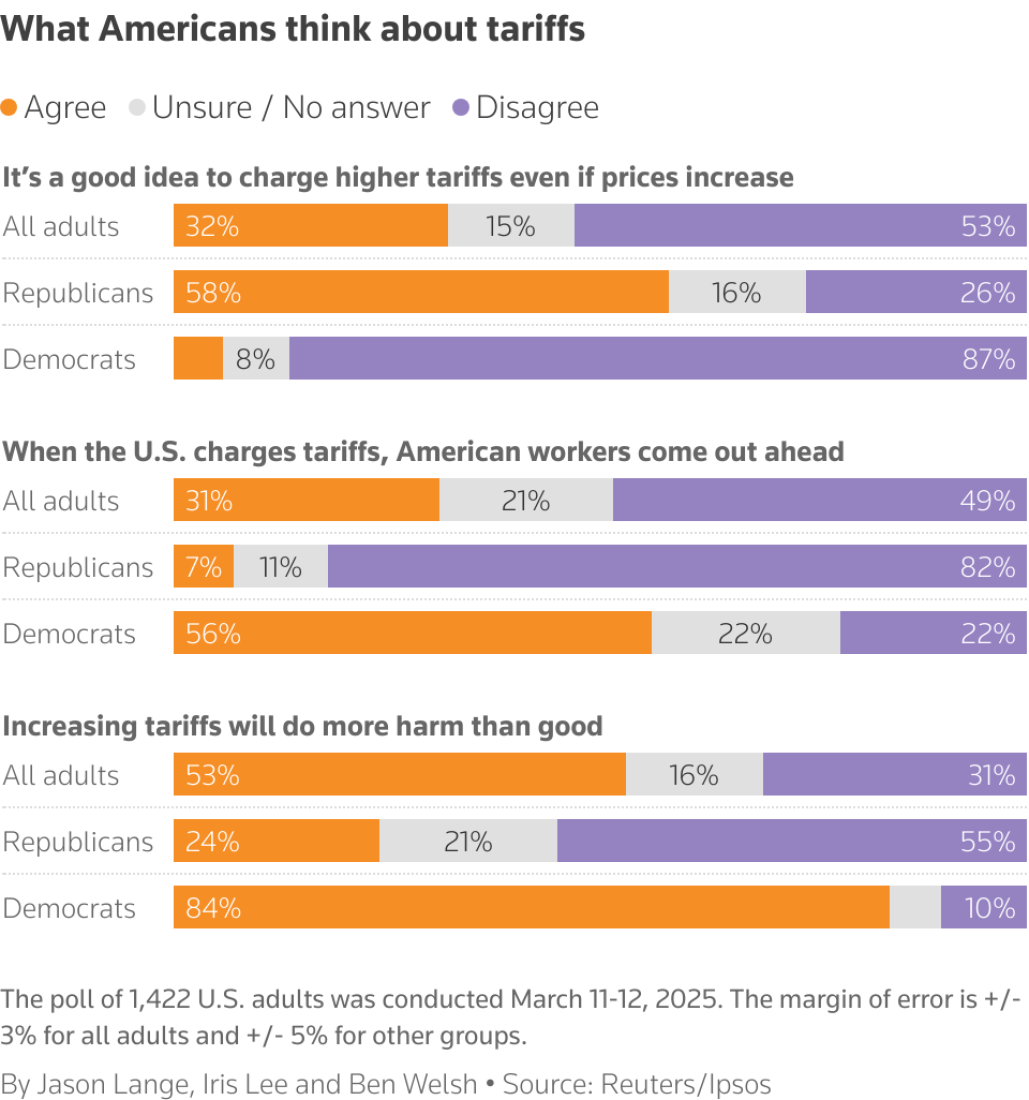U.S.-Israeli strikes on Iran: What we know so far
The United States and Israel have carried out large-scale strikes on Iranian leadership and military targets, with Iranian state media confirming t...
A Reuters/Ipsos poll reveals that 57% of Americans believe President Donald Trump’s approach to reshaping the U.S. economy is overly erratic.
The poll’s findings come as Trump's recent imposition of tariffs on allies like Canada and Mexico has contributed to significant market volatility. With the S&P 500 losing over $3 trillion in value from its recent peak, many respondents worry that these policy shifts could lead to higher everyday costs. In fact, 70% of those surveyed—nine in ten Democrats and six in ten Republicans—expect that increased tariffs will drive up the prices of groceries and other essentials.

Despite the widespread apprehension, Americans still want Trump to prioritize efforts to combat high prices. However, the poll suggests a disconnect between this priority and the administration’s unpredictable moves. Overall, 44% of respondents approved of Trump's job performance, a figure that remained unchanged from an earlier Reuters/Ipsos survey, while only 32% expressed satisfaction with his handling of the cost-of-living crisis.
Political reactions to the poll are mixed. Some Republicans on Capitol Hill, like Senator Roger Marshall, remain optimistic about the long-term benefits of Trump's policies, arguing that the stock market is only one piece of the broader economic picture. In contrast, critics—including advocacy group Americans for Responsible Growth—decry the administration's strategy as "chaotic," warning that it could leave consumers and businesses grappling with higher prices, fewer choices, and mounting uncertainty.
The poll also sheds light on partisan divides regarding the future impact of Trump's policies. Nearly 80% of Republicans agreed that his economic actions would eventually pay off, while only 41% of the overall respondents shared that optimism—a stark contrast to the mere 5% of Democrats who believe the policies will be beneficial in the long run.

With inflation remaining a top concern for six out of ten respondents, the survey underscores the critical pressure on the president to stabilize the economy. As market jitters persist and the debate over trade policies continues, the poll reflects growing public unease about the direction of U.S. economic policy under Trump.
Follow the latest developments and global reaction after the U.S. and Israel launched “major combat operations” in Iran, prompting retaliation from Tehran.
Ayatollah Alireza Arafi has moved into a pivotal constitutional role following the death of Supreme Leader Ayatollah Ali Khamenei, becoming the clerical member of Iran’s temporary leadership council under Article 111 of the Constitution of the Islamic Republic of Iran.
Governments across the region responded swiftly to Israel’s strikes on Iran, closing airspace, issuing travel advisories and activating contingency plans amid fears of escalation.
A senior Iranian official has warned Israel to “prepare for what is coming”, insisting that Tehran’s response to the latest escalation in the Middle East will be made openly and without limits.
Ayatollah Ali Khamenei, Iran’s supreme leader for 36 years and the country’s highest political and religious authority, has died aged 86 following joint Israeli and U.S. strikes on his compound in Tehran.
Protests broke out in Pakistan and Iraq on Sunday after Iranian state media confirmed that Supreme Leader Ayatollah Ali Khamenei had been killed in joint U.S.–Israeli strikes. At least nine people were reported dead in clashes near the U.S. consulate in Karachi.
Afghanistan said it had fired at Pakistani aircraft over Kabul after explosions and gunfire rocked the capital early on Sunday, marking a sharp escalation in fighting between the two neighbours.
A senior Iranian official has warned Israel to “prepare for what is coming”, insisting that Tehran’s response to the latest escalation in the Middle East will be made openly and without limits.
Cuba has released extensive details of a deadly midweek shootout at sea, showing rifles, pistols and nearly 13,000 rounds of ammunition that it says were carried by a group of exiles who attempted to enter the island by speedboat.
Afghanistan’s Taliban rulers said on Friday (27 February) they were ready to negotiate after Pakistan bombed their forces in several Afghan cities, including Kabul and Kandahar, and Islamabad declared the neighbours were now in "open war".
You can download the AnewZ application from Play Store and the App Store.

What is your opinion on this topic?
Leave the first comment